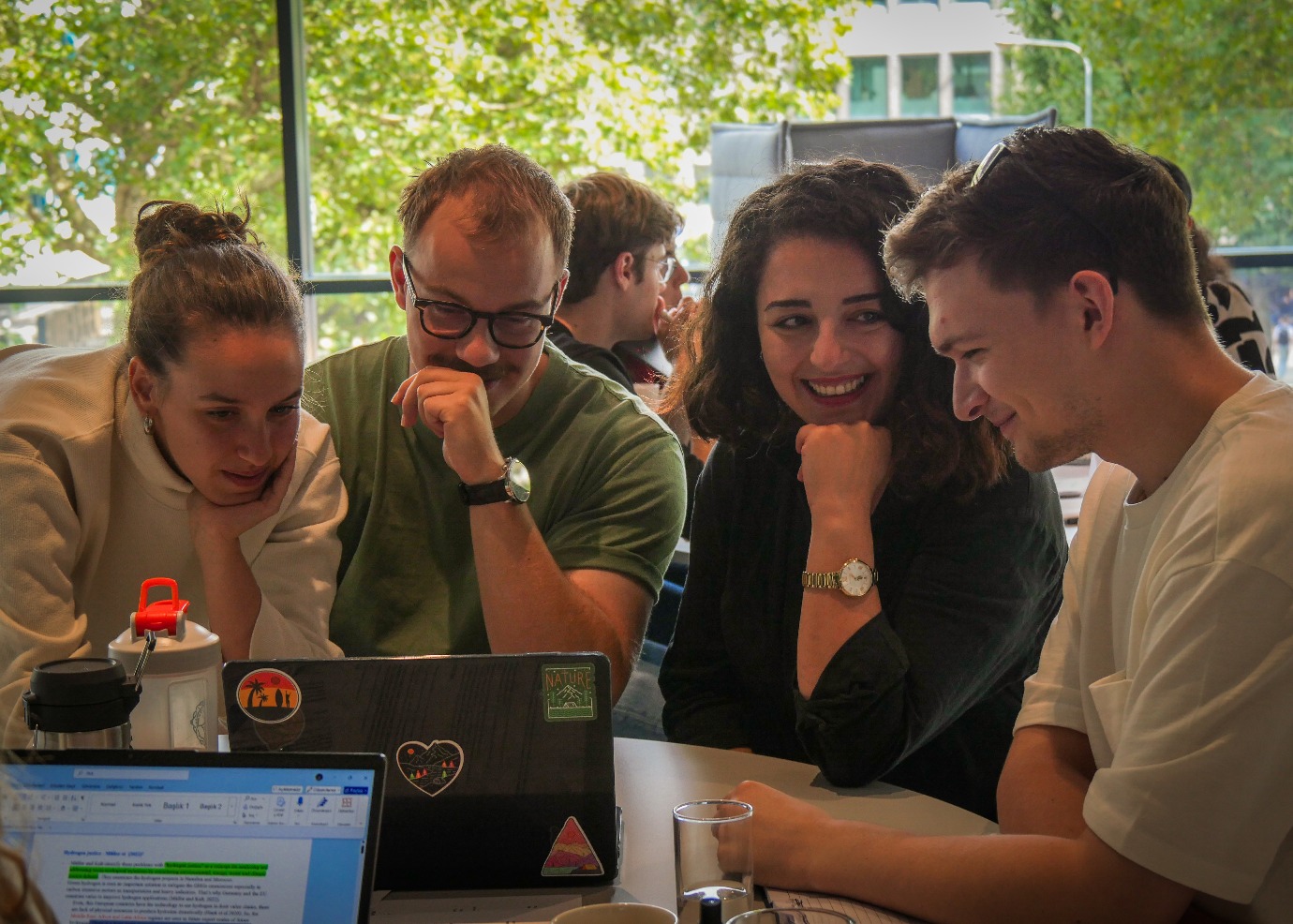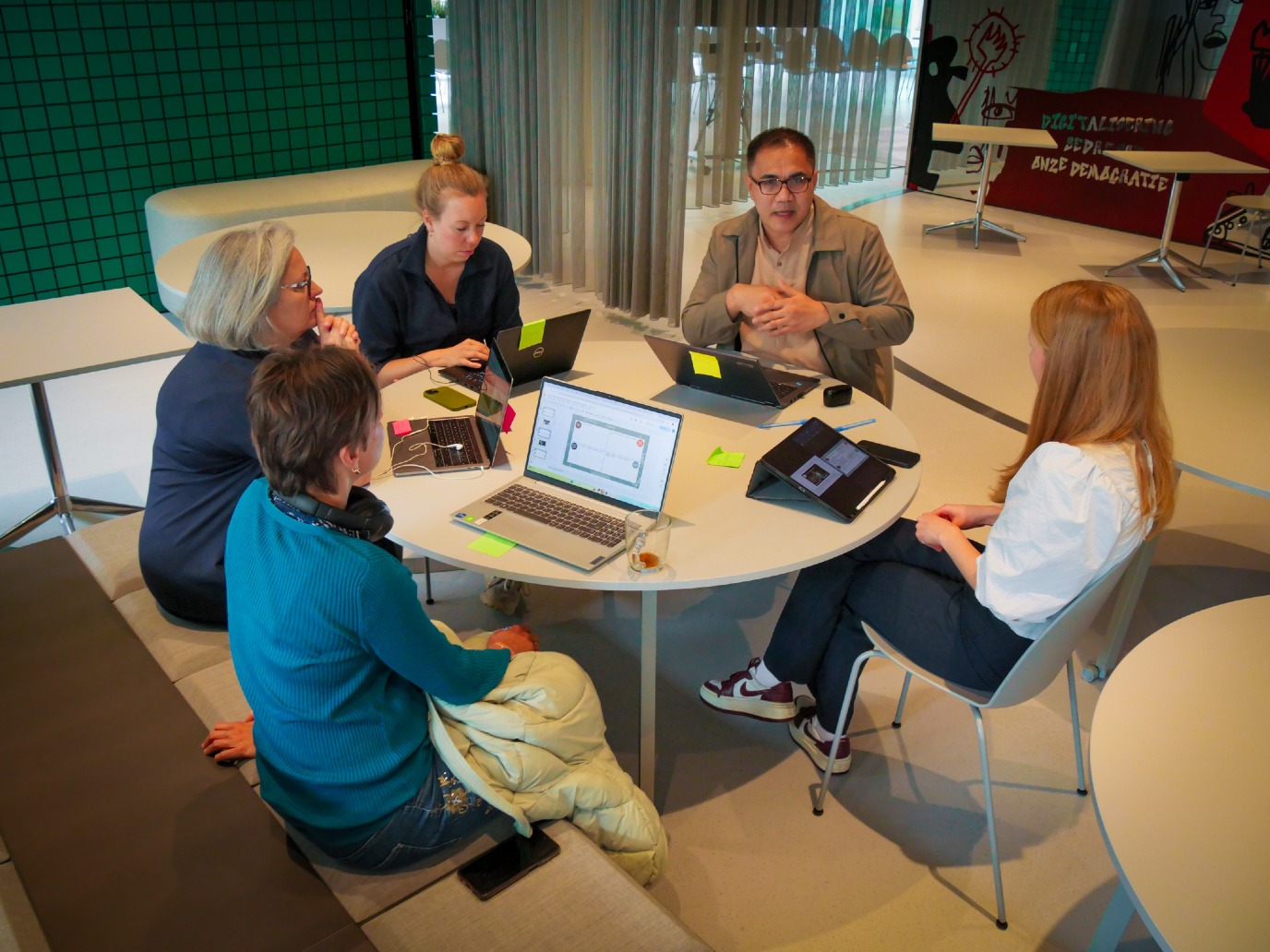‘Summer Schools are a showcase for interdisciplinary education’

Challenge-based, interdisciplinary, and society-oriented education. That’s what the Summer Schools are all about, co-organized by the Schools for Science & Society. The participants and lecturers, each with very different backgrounds, bring together a wide range of perspectives. ‘That diversity leads to a broad range of solutions to societal challenges.’
Text: Jelle Posthuma
‘One of the best experiences of my life,’ is how Sarbani Belur describes her participation in the Summer School Sustainable Landscapes – The Wadden Experience. Belur is a visiting Assistant Professor at Birla Institute of Technology and Science (BITS-Pilani) Hyderabad campus and traveled to the Netherlands last summer to take part in the program. A key motivation for her participation was the academic work of University of Groningen (UG) researcher Wander Jager in the field of agent-based simulation. ‘Just reading his papers wasn’t enough,’ Belur says. ‘I wanted to experience his research in practice, so I decided to join the Summer School he was involved in.’
During The Wadden Experience, participants learned from UG researchers Wander Jager and Daniella Vos about sustainable landscape development in the Wadden region. A group of twenty (international) participants went on a five-day sailing trip aboard the Willem Jacob. ‘The sailing experience on the Wadden Sea was an essential part of the Summer School,’ Belur says. ‘In the evenings, we sat on the deck of the ship and looked at the stars. I will never forget that moment. When I close my eyes, I can still see it clearly.’
Belur emphasizes how valuable the interaction among the diverse group of participants was. ‘There were people with very different levels of knowledge, from students to experienced researchers, from all over the world, including Italy, Serbia, Germany, Russia and Peru. That diversity and interdisciplinary mix made the Summer School especially valuable.’
Showcase
Every summer, the four Schools for Science & Society organise various Summer Schools. Pauline Bakker is Education Coordinator for the Wubbo Ockels School for Energy & Climate and the Jantina Tammes School of Digital Society, Technology & AI. She is involved both practically and substantively in five Summer Schools on a range of topics, such as artificial intelligence (AI) and climate adaptation. ‘The Summer Schools are our showcase for interdisciplinary education,’ she says.
According to Bakker, the Summer Schools perfectly align with the goals of the Schools for Science & Society. ‘They are interdisciplinary, socially engaged and challenge-based. By ‘challenge-based’, we mean that we collect real-world problems from our network, for example from businesses, governments or NGOs, and participants work on them. What is great is that the participants themselves are very diverse, from students to professionals from different fields. That diversity leads to a broad range of solutions to these challenges.’

Human connection
This diversity among participants is also noted by Tracy Poelzer, Educational Specialist at the UG and co-coordinator of the Summer School on the use of Artificial Intelligence in Higher Education. ‘We had fourteen participants from ten different countries.’ One of the main topics of discussion was how AI can enhance education. Some teachers feel comfortable with students using generative AI, while others are still exploring the possibilities and objections.
According to Poelzer, the different perspectives of the participants led to interesting insights. ‘Even though we are all dealing with AI, the conversations showed different cultural contexts.’ She explains: ‘Some countries are less represented in large AI language models. By brainstorming together about AI, we gained insights from ten different countries. This human connection, even when discussing a topic like AI, was essential during our Summer School.’
Experiential learning
Ferdinand Lewis, Education Director at Arts in Health Netherlands (AiHN), which is part of the Aletta Jacobs School of Public Health, also emphasizes human connection and diverse perspectives. During the Arts in Health Summer School, participants learn how art can be applied in healthcare. In hospitals and long-term care facilities, it can improve patients’ experiences and help healthcare professionals cope with stress and burnouts. Among people who are well, the arts can support illness prevention and support quality.
The participants are from diverse backgrounds, cultures, and countries. Students include experienced healthcare professionals, such as doctors or nurses or professional artists, as well as students. ‘Students at all levels, from bachelor’s to PhD, took part, along with educators and professionals from healthcare, the arts, and management. A diverse group, but all share an interest in the theme of Arts in Health,’ says Lewis.
During workshops, researchers share the latest theoretical insights on Arts in Health within practical workshops, which Lewis describes as “experiential learning”, connecting theory and hands-on training with the student’s own experience. ‘This way of learning is about problem-solving in particular real-world situations. Real understanding develops best when it is continuous with your own experience. The Summer School offers a safe environment where students can confront and expand their own understanding, in a supportive community.’
The Summer School is, above all, a way for people to get acquainted with practice and research, and then apply that in different contexts. Lewis mentions the example of two UG literature scholars who used the Summer School to develop their idea for a PhD research program on Literature in Health, drawing inspiration from their experiences of the program.
Education coordinator Bakker recalls a highlight from a participant in the Summer School Energy Challenge. ‘After a long flight and a delayed bus ride, the participant initially was not very enthusiastic. But afterward, he told us how much he had learned and how many new perspectives he had gained. That was wonderful feedback for us, because that is exactly what the Summer School is all about.’
The Summer Schools are organized by the four Schools for Science & Society: Aletta Jacobs School of Public Health, Jantina Tammes School of Digital Society, Technology and AI, Rudolf Agricola School for Sustainable Development, Wubbo Ockels School for Energy and Climate.
More news
-
15 September 2025
Successful visit to the UG by Rector of Institut Teknologi Bandung

